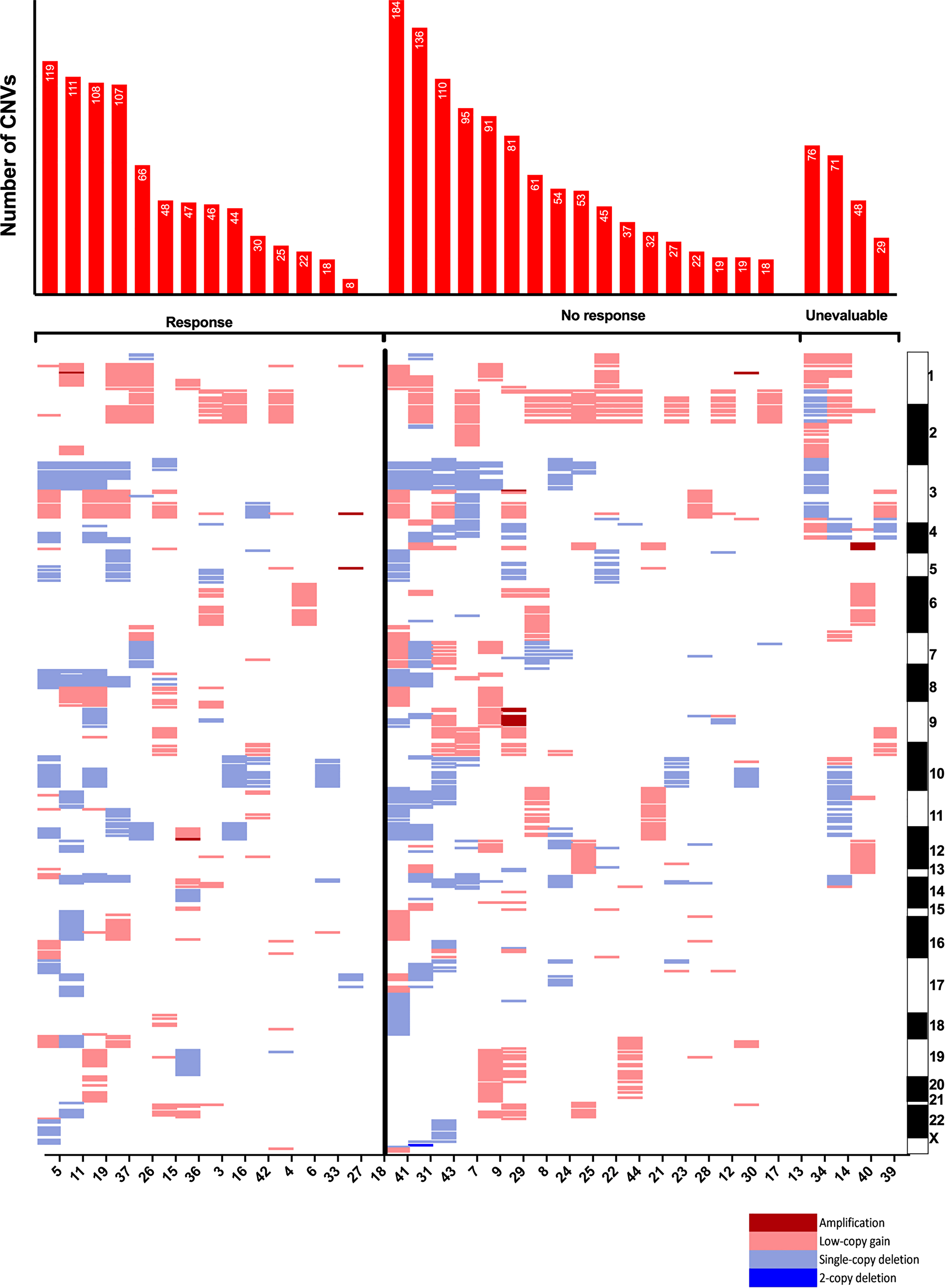Oncotarget published "Predictors of immunotherapy benefit in Merkel cell carcinoma" which reported that the authors retrospectively analyzed electronic health records and next-generation sequencing data of 45 patients treated at our institution from 2013 to 2020 to understand clinical and genomic correlates of benefit from immunotherapy.
They reported that their cohort predominantly included individuals with stage III disease at primary disease diagnosis and individuals with stage IV disease at recurrent/metastatic disease diagnosis.
Less advanced stages at primary disease diagnosis and shorter disease-free interval between completion of initial treatment and recurrence were each associated with greater odds of response.
Single-nucleotide variants in ARID2 and NTRK1 were associated with response, while none of Merkel cell polyomavirus status, total mutational burden, ultraviolet mutational signatures, and copy-number alterations predicted outcomes.
Patients with shorter disease-free intervals may be particularly suitable immunotherapy candidates.
Dr. Glenn J. Hanna from CCR/NCI in Bethesda, MD as well as The Dana-Farber Cancer Institute in Boston Massachusetts said, "Merkel cell carcinoma (MCC) is a relatively rare cancer, with roughly 400 cases per 100,000 persons each year in the United States."
Dr. Glenn J. Hanna from CCR/NCI in Bethesda, MD as well as The Dana-Farber Cancer Institute in Boston Massachusetts said, "Merkel cell carcinoma (MCC) is a relatively rare cancer, with roughly 400 cases per 100,000 persons each year in the United States"
Before the age of immunotherapy, there was significant room for improvement in survival rates, with five-year survival of 60% overall and 14–21% among patients with distant disease.
Now, immune checkpoint inhibitors in the metastatic setting are associated with often durable response rates approaching 70% and three-year overall survival of up to 64%.
However, knowledge of predictors of response is lacking. Clinicians require a greater understanding of predictive markers for therapy selection, while researchers require an improved understanding of underlying mechanisms to inform drug development and trial design.

Figure 3: Copy-number variants by response to immune checkpoint inhibitor. Copy-number variants arranged by chromosomal band loci. Each column represents an individual tumor and corresponding gene loci. Chart at top shows total number of genes with copy number variants per sample. Patient samples presented by response and in order of descending total number of CNVs. CNV = copy-number variant.
In the present study, the authors build on this prior approach by incorporating multivariable analysis techniques, studying patients over a longer follow-up time period, and by studying a homogeneous MCC population all treated with CPIs.
Additionally, they set out to include a greater number of CPI-treated patients in their work and statistically analyze the correlations of specific single nucleotide variants and copy number variations with response to CPIs.
The Hanna Research Team concluded in their Oncotarget Research Output, "Our study points to several factors for clinicians to consider in the context of other clinical and pathologic findings when making treatment decisions. In particular, patients with ARID2 mutations, NTRK1 mutations, or shorter time to recurrence may be expected to have a higher likelihood of benefit from CPIs. These findings present potential areas for future basic scientific research related to molecular mechanisms. Future clinical study may explore the potential for Trk inhibition in combination or sequence with immunotherapies."
Sign up for free Altmetric alerts about this article
DOI - https://doi.org/10.18632/oncotarget.27823
Full text - https://www.oncotarget.com/article/27823/text/
Correspondence to - Glenn J. Hanna - [email protected]
Keywords - cancer, genomics, immunotherapy, Merkel cell carcinoma, precision medicine
About Oncotarget
Oncotarget is a bi-weekly, peer-reviewed, open access biomedical journal covering research on all aspects of oncology.
To learn more about Oncotarget, please visit https://www.oncotarget.com or connect with:
SoundCloud - https://soundcloud.com/oncotarget
Facebook - https://www.facebook.com/Oncotarget/
Twitter - https://twitter.com/oncotarget
LinkedIn - https://www.linkedin.com/company/oncotarget
Pinterest - https://www.pinterest.com/oncotarget/
Reddit - https://www.reddit.com/user/Oncotarget/
Oncotarget is published by Impact Journals, LLC please visit https://www.ImpactJournals.com or connect with @ImpactJrnls
Media Contact
[email protected]
18009220957x105



